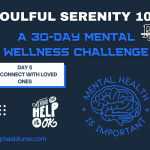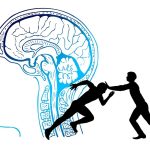In today’s fast-paced world, where stress and anxiety have become commonplace, the need for effective psychological interventions has never been greater. Mindfulness-Based Cognitive Therapy (MBCT) is a therapeutic approach that has gained significant recognition for its ability to help individuals manage their emotions, reduce the risk of depressive relapse, and enhance overall well-being. In this comprehensive guide, we will explore the principles, techniques, and benefits of MBCT, shedding light on how this therapy can transform lives by promoting mindfulness and cognitive change.
Understanding the Foundations of MBCT
Mindfulness-Based Cognitive Therapy (MBCT) is an evidence-based therapeutic approach that combines elements of mindfulness meditation with principles of cognitive therapy. Developed in the late 1990s by Dr. Zindel Segal, Dr. Mark Williams, and Dr. John Teasdale, MBCT was initially designed as a relapse prevention program for individuals who had recovered from major depressive disorder. It was built upon the success of Mindfulness-Based Stress Reduction (MBSR), an earlier program developed by Dr. Jon Kabat-Zinn.
At the heart of MBCT lies the practice of mindfulness, which has ancient origins in Buddhist traditions. Mindfulness involves paying non-judgmental attention to the present moment, cultivating awareness of thoughts, emotions, bodily sensations, and external stimuli. This practice encourages individuals to observe their experiences without attachment or aversion.
Incorporating cognitive therapy principles into mindfulness, MBCT addresses the relationship between thought patterns and emotional well-being. Cognitive therapy, also known as cognitive-behavioral therapy (CBT), focuses on identifying and challenging negative thought patterns that contribute to emotional distress. MBCT combines the power of mindfulness with cognitive strategies to help individuals break free from the cycle of rumination and depressive relapse.
Core Principles of MBCT
Central to MBCT is the practice of mindfulness meditation. Participants are taught various mindfulness techniques, such as the body scan, mindful breathing, and loving-kindness meditation. These practices aim to anchor individuals in the present moment, enhance self-awareness, and develop an attitude of acceptance and non-reactivity toward their experiences.
One of the key concepts in MBCT is the idea of living on “automatic pilot.” Many people go through life on autopilot, engaging in habitual patterns of thinking, feeling, and reacting without conscious awareness. MBCT helps individuals recognize when they are in automatic pilot mode and encourages them to shift into a more mindful state.
Cognitive restructuring is another essential component of MBCT. It involves identifying and challenging automatic negative thoughts and cognitive biases that contribute to emotional suffering. By recognizing these patterns, individuals can reframe their thoughts and develop a more balanced perspective.
Self-compassion is a crucial aspect of MBCT. It involves treating oneself with kindness, understanding, and non-judgment, especially during difficult times. MBCT encourages individuals to develop self-compassion as they explore their inner experiences.
The MBCT Program
The MBCT program typically consists of eight weekly sessions, each lasting about two hours. These sessions are usually conducted in a group format, although individual therapy is also an option. The structured nature of the program helps participants develop a consistent mindfulness practice.
Key Components
During each MBCT session, participants engage in a variety of activities and discussions, including:
- Guided mindfulness meditations
- Group discussions and sharing of experiences
- Cognitive exercises to identify and challenge automatic thoughts
- Psychoeducation on depression and mindfulness
- Homework assignments to encourage daily mindfulness practice
Daily mindfulness practice is a fundamental aspect of MBCT. Participants are encouraged to set aside time each day to engage in mindfulness meditation and other mindfulness activities. This consistent practice helps individuals integrate mindfulness into their daily lives.
After completing the eight-week MBCT program, participants are encouraged to continue their mindfulness practice independently. This ongoing practice serves as a buffer against depressive relapse and helps individuals maintain their emotional well-being.
The Scientific Evidence
One of the most significant achievements of MBCT is its effectiveness in reducing the risk of depressive relapse. Multiple studies have demonstrated that individuals who have experienced recurrent depression can benefit from MBCT, with relapse rates significantly lower compared to those who did not receive the therapy.
MBCT has been found to improve emotional regulation and increase emotional resilience. Through mindfulness practice and cognitive restructuring, individuals learn to respond to difficult emotions with greater equanimity and self-compassion.
Beyond its role in depression prevention, MBCT has been associated with enhanced overall well-being. Individuals who engage in regular mindfulness practice often report lower levels of stress, anxiety, and improved quality of life.
Recent neuroscientific research has provided valuable insights into the effects of mindfulness on the brain. Studies using neuroimaging techniques have shown that regular mindfulness practice can lead to structural and functional changes in brain regions associated with emotion regulation and self-awareness.
Who Can Benefit from MBCT?
MBCT is primarily designed for individuals who have experienced multiple episodes of depression. It serves as a valuable tool in preventing the recurrence of depressive episodes and breaking the cycle of chronic depression.
While MBCT was initially developed for depression, it has also shown promise in helping individuals with generalized anxiety disorder (GAD). The mindfulness and cognitive strategies taught in MBCT can be adapted to address the persistent worry and anxiety characteristic of GAD.
In our fast-paced modern world, stress has become a ubiquitous challenge. MBCT can be beneficial for anyone looking to reduce stress, enhance resilience, and improve their overall well-being.
MBCT is not limited to clinical populations. Anyone interested in developing mindfulness skills, improving emotional regulation, and gaining a deeper understanding of their thoughts and emotions can benefit from MBCT.
The Ethical Foundations of MBCT
At its core, MBCT is rooted in the ethical principles of non-judgment and compassion. Participants are encouraged to cultivate a non-judgmental attitude toward their own experiences and to treat themselves with kindness and self-compassion.
Mindfulness practice is closely tied to ethical behavior. As individuals become more mindful of their thoughts and actions, they often develop a greater sense of ethical responsibility toward themselves and others.
While MBCT is a secular therapeutic approach, its origins in mindfulness meditation are rooted in Buddhist ethics. The ethical foundations of Buddhism, such as the Four Noble Truths and the Eightfold Path, underpin many of the principles taught in MBCT.
Incorporating MBCT into Daily Life
To reap the long-term benefits of MBCT, individuals are encouraged to continue their mindfulness practice beyond the formal sessions. This includes integrating mindfulness into everyday activities, such as eating, walking, and even working.
MBCT can improve interpersonal relationships by fostering mindful communication. Individuals learn to listen more attentively, respond with greater empathy, and communicate more skillfully.
Gratitude is often emphasized in MBCT as a way to cultivate a positive outlook on life. Practicing gratitude can enhance one’s appreciation for the present moment and counterbalance negative thought patterns.
The Future of MBCT
As the evidence supporting MBCT continues to grow, efforts are being made to make this valuable therapy more accessible. Online MBCT programs, mobile apps, and self-help resources are becoming increasingly available to reach a broader audience.
MBCT is gradually finding its place within mainstream healthcare. It is being integrated into treatment protocols for various mental health conditions, and healthcare professionals are receiving training in delivering MBCT to their patients.
Ongoing research is exploring the potential applications of MBCT in diverse areas, including addiction, post-traumatic stress disorder (PTSD), and chronic pain management. The future of MBCT holds exciting possibilities for helping individuals across a wide range of conditions.
Conclusion
Mindfulness-Based Cognitive Therapy (MBCT) represents a powerful fusion of mindfulness and cognitive therapy, offering individuals a practical approach to managing their emotions, preventing depressive relapse, and enhancing overall well-being. With its roots in ancient mindfulness practices and a growing body of scientific evidence, MBCT continues to transform lives by promoting mindfulness and cognitive change. Whether you are seeking relief from depression, anxiety, or simply looking to lead a more mindful life, MBCT holds the potential to bring about positive transformation and lasting change.
Incorporating MBCT into your life requires commitment and practice, but the rewards are profound. As you embark on your journey of self-discovery and emotional healing through MBCT, may you find greater peace, resilience, and well-being in every moment.




